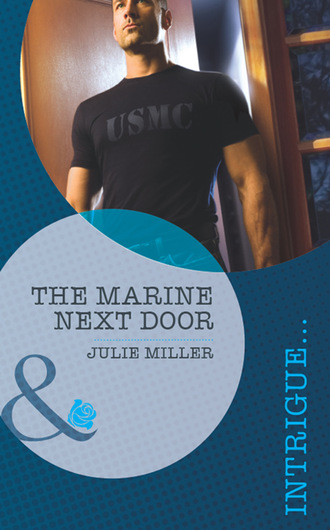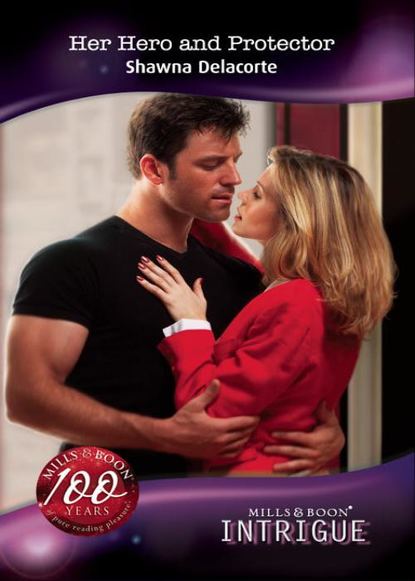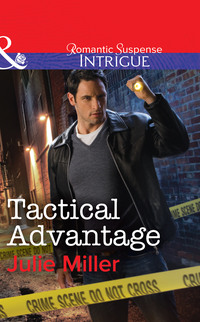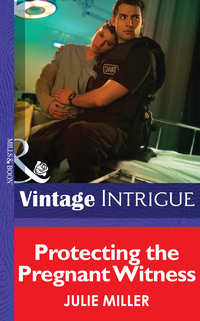
Полная версия
The Marine Next Door
“And makes us look bad that he’s still on the street,” his partner added. “That has to feed this perp’s power trip.”
Chief Taylor nodded. “I’ve already gotten a call this morning from Mr. Mayweather, after he talked to the commissioner. He’s agreed to use discretion and defer to us, at least until we get our investigation under way.”
“Is Miss Austin okay?” Montgomery asked.
“Look at the pictures,” Annie said. “She was brutalized.”
“I’m asking, did she survive? Is she alive? Coherent?” Maybe Maggie had only imagined an emotional reaction from Detective Montgomery because he cleared his throat and his tone became every bit as clipped and clinical as a scientist discussing his research. “I’d like to question her—as soon as Dr. Kilpatrick here thinks she can handle it. If we can’t talk to a suspect, the next best thing is talking with the vic. If we could get a grasp on what she was thinking and doing that made her pop up as a target for this bastard, that might give us a lead to track him down.”
Dr. Kilpatrick held the detective’s gaze across the table. “I’d suggest sending an interrogator with a little more tact and compassion than you, Spencer.”
“I get the job done,” he argued.
The police psychologist was unfazed by the chill in his tone. “Whoever interviews the women who were attacked needs to understand their victimology. Rape victims require an intuition, an empathy, even, to get them to communicate. You may be dealing with anger, extreme distrust, fear of reprisals. They could be shut down and unreachable. Research indicates that some women even feel they deserved the attack, and won’t cooperate with police to catch their rapist.”
Nick Fensom swore beneath his breath. “Nobody deserves what happened to her.”
Kate Kilpatrick nodded. “Unless you’ve been through that, though, it’s difficult to understand the victimology.”
The letter k repeated in row after row on the computer screen as Maggie’s fingers stilled on her keyboard. Chief Taylor hadn’t asked her into the meeting just to take notes after all. She was certain of it.
Detectives, a police psychologist, a crime lab liaison and a security expert. Their presence on the task force made sense. Now she understood that her presence here made sense, too.
Maggie knew what it was like to be a rape victim better than anyone else sitting at this table, as far as she was aware. She’d long ago locked down that part of her life and moved on the best she could to raise her son and provide a healthy, normal existence for them both. But if she could help Bailey Austin recover from her attack—if she could get the other victims to talk or offer some unique insight that could prevent the Rose Red Rapist from striking again … then maybe it was time to for her to unlock that terrible expertise.
Her attacker had been a free man for precisely forty-three days now. And even though a court order legally prevented Maggie from ever having to deal with her ex-husband again, she’d awakened every morning and fallen asleep each night for the past forty-three days, wondering if this was the day Danny Wheeler would return and finish what he’d started ten years earlier. The tulip this morning told her she’d been right to worry. She knew how frightened Bailey Austin was feeling right now—how wary and exposed and unable to trust she’d be until the bastard who’d raped her was put behind bars.
Maggie Wheeler understood victimology. Chief Taylor was a smarter man than he sometimes let on. He’d known exactly what he was doing when he’d asked her to join this meeting. Some favor.
“I’ll let you all work out the details.” He was wrapping up the meeting. “Montgomery’s running this show, but I want a daily report. Anything you need, don’t wait and go through channels if there’s any kind of delay. You need a warrant, you need to talk to another division, you need access to sealed records—whatever it might be—you come to me and I’ll expedite the request. As of now, this investigation is priority one.” Maggie deleted all the extra letters and saved her notes, working up the courage to raise her hand and interrupt. “I have a wife and a daughter. I want this bastard off the streets.”
The answering chorus of “Yes, sirs” told her the meeting had ended. People were breaking into smaller discussions. Pike Taylor urged his dog to its feet. The chief opened the door and was leaving the room.
Do it. Ten years of recovery and a hard-won independence urged Maggie to rise to her feet. One gift from her ex wasn’t going to intimidate her into sitting on her hands and allowing another woman to be hurt. She had a unique skill that no one else in this room could bring to the table. She breathed in deeply and made her decision. Men like her ex-husband and the Rose Red Rapist didn’t get to terrorize the women of Kansas City. Not when she could do something to help stop them.
“Do it,” she whispered to herself, closing her laptop and hurrying after Chief Taylor. She caught up to him in the hallway just outside his executive assistant’s office. “Chief, could I talk to you a minute?”
He pulled back his sleeve and checked his watch before offering her half a smile. “I was hoping I’d pique your interest.” He nodded to the woman at the desk in his outer office as he ushered Maggie through to his office. “Brooke, hold my calls.”
“Right, Mitch.” Brooke Kincaid, probably Maggie’s best friend here at Fourth Precinct headquarters, mouthed a question to Maggie. Are you okay?
Maggie nodded, trading a thumbs-up sign with her friend, even though she was certain she looked pale as a ghost. She had to do this. She needed to be a part of this team.
Chief Taylor closed his office door and gestured to a seat on the near side of his massive walnut desk. “I know you don’t have investigative experience yet, Maggie. But I also know how much you want to make detective. I hate to lose the efficiency you bring to running the front desk, but I think you could be an asset to the team. You’d be invaluable talking to the victims.” His leather chair creaked as it took his weight. “I don’t want to force you because I know it’s a personal subject for you, but—”
“You don’t have to give me a sales speech, sir,” Maggie assured him. “You know my history with Danny. And I know that’s why you asked me to join that meeting.”
A much younger Mitch Taylor had been the arresting officer when her ex had finally answered for his violence against her. “I didn’t want to give you too much time to think about it. I figured you might talk yourself out of helping.”
“If you want someone who understands the victimology of the women the Rose Red Rapist preys on, I’m … qualified.”
“You’re sure? This could bring up some painful memories.” He braced his elbows on the desk and leaned toward her. “And I won’t lie to you—Danny has been out of prison a couple of months now, hasn’t he? This has to be a particularly trying time for you. Nothing about this investigation will be easy.”
She should have known a cop as experienced and on-the-ball as Mitch Taylor would be aware of her ex-husband’s release from prison. Maybe he even considered her ex a person of interest because Danny Wheeler’s time locked up in Jefferson City roughly matched the gap in the Rose Red Rapist attacks. She didn’t know whether Danny would target any other woman except her, but then she hadn’t known the extent of the violence he was capable of when she’d married him either.
“I want to do this, Mitch.” This was her chance to prove to Chief Taylor that she was not only ready, but that she also deserved to make detective. It was also her chance to prove to herself that she truly had moved beyond the past that had once shadowed every aspect of her life. She was a fighter. A mother. A cop. A college graduate. She was nobody’s victim anymore. “Some things, no matter how difficult they are, are worth doing. I want to fight for these women—be their advocate if I can. I want to join your task force.”
Chapter Two
This was getting old.
John Murdock’s thick arms and thighs flexed easily as he lifted two more boxes of books from the back of his pickup and shut the tailgate. But his right knee ached, and shards of phantom pain radiated down into his ankle and foot. He’d been at this all day—long enough for the sun to go down outside—packing, carrying, unpacking, hauling some more. Even though he’d made the trip several times already without incident, habit had him checking the cars on either side of him, and behind each crumbling brick-encased support pillar as he limped across the cracked concrete of the parking garage below his building.
He wondered how long the pain that wasn’t really there would stay with him—possibly the rest of his life according to many of the doctors and therapists who’d worked on him. He wondered how long it would take before it stopped feeling like he was just going through the motions expected of him by civilized society, and he truly felt like he was home. He was getting used to the quizzical looks from strangers, setting him apart because they viewed him as some kind of hero or they felt sorry for him. Either option set his teeth on edge and made it hard to interact without second-guessing every word or gesture directed his way.
He wondered when he’d feel like celebrating surviving his last tour of duty in Afghanistan, when he’d feel like unpacking his Purple Heart, Silver Star and other medals and deployment ribbons. He wondered when he’d be ready for a beer with old friends or facing the job—and the woman he loved but could never have—that he’d left behind. It didn’t matter that he’d lived his whole life in Kansas City before reupping with the Corps. He felt like a stranger in his own town, with his own things, inside his own skin.
He’d left a part of himself behind on that roadside in Afghanistan. In more ways than one.
Returning to the Corps was supposed to have been a fresh start for him—coming home after his stint was up, the beginning of a brand-new chapter in his life. Yet he felt stuck, like nothing had changed. He’d loved the wrong woman, raised a sister who no longer needed him, given his spleen and a good part of his right leg, a couple of friends and half of his soul to the enemy he’d gone to fight.
Inside, he was still a long way from coming home.
Adding boxes of books and kitchen supplies, along with a few civilian clothes, to the boring beige of his furnished apartment didn’t do much to make this feel like a homecoming. But it got him out of the spare bedroom at his sister’s place so she could sell it and get on with marrying her fiancé. And, it was mindless exercise that tired him out and didn’t require much thought. Right now it was enough to feel less like a burden and to look forward to a decent night’s sleep.
John slowed when he heard footsteps ahead of him. Two sets of footfalls on the far side of that last pillar. He was a big enough man that it’d take a pretty bold mugger to come after him. But size alone wasn’t a deterrent if the perps were hyped up on some kind of drug or they took a closer look at his disability and mistook him for an easy mark—if there was a mugger at all.
Running into normal, everyday people who expected normal, everyday conversation out of him was almost more daunting than facing someone who wanted to hurt him. He’d been in survival mode for over a year now, and adjusting to normal was taking just as long as the psychologist who’d debriefed him when he’d mustered out had said it would.
The curve of a butt in navy blue slacks disappearing between the open doors of the garage’s elevator almost made him stop in his tracks as he rounded the last pillar and passed the wall of junction boxes and access panels and fire emergency equipment. So the challenge would be normal, everyday civility if he got on that elevator. Would the woman who owned those curves notice the empty pant leg? Or the carbon-fiber composite rod sticking out of his boot? Would there be a slew of curious questions or politely stilted silence as she avoided eye contact with him? Maybe she’d just stare at the scars on his neck, arm and hand. A vein ticked along the column of his throat as the relative tranquility of being alone warred with his common sense.
Who knew how long he’d have to stand there holding the heavy boxes before his ride returned again? The Corsican might be rich in architectural history and renovation potential, but the building had just the one elevator that ran to all ten floors. He might as well start dealing with normal, everyday now rather than putting it off indefinitely.
“Hold the elevator,” he called out, lengthening his stride.
The woman gasped. Maybe he’d just startled her. “Hurry up,” she muttered—to her companion.
John bristled at the whispered slight. Were they trying to get away? Maybe she’d gotten a glimpse of him as well and wasn’t thrilled about the idea of sharing the tiny space with him either. But if he could make the effort to be civil, then the woman attached to that backside could damn well do the same.
“Hold it,” he ordered in a sharper tone. He heard a “Mom,” and then a slender, tanned arm shot out to catch the door as he slipped inside. He looked straight into a pair of emerald-green eyes, silently telling the woman that he knew she’d tried to leave him behind. “Thanks.”
But when the doors closed and John retreated to the opposite corner to rest his boxes on the railing, he wondered if he’d made a tactical error. That verdant gaze, sparkling with defiance or warning or some other kind of intense emotion, followed him all the way to the back of the elevator before the woman blinked and turned away. Seeing her adjust her stance to position herself between him and the chestnut-haired boy with her made John wish he’d waited for the next ride up after all. Nice to meet you, too. He felt her wariness of him like a punch in the gut.
And he’d been worried about making small talk.
This woman meant business when it came to protecting her son from the big, bad strangers of the world. Despite the copper-colored hair twisted up in a bun at the nape of her neck, with a dozen fiery gold wisps popping loose to curl against her skin, she was no dainty female. She was tall, standing nearly six feet, judging by the mere five or six inches John topped her by when he normally towered over most women. She was in uniform and she was armed.
One hand rested on the butt of the GLOCK 9 mm holstered at her waist as she inched closer to the boy who was peeking at him from beneath the bill of his Royals baseball cap. John was pretty sure the protective-mama move was intentional when she turned so he could clearly see the KCPD badge hanging from the chain beneath her starched collar.
“What floor?” she asked politely enough. But her green eyes darted as though they were assessing his height and width and the distance between them.
“Seventh.”
“Travis.” She squeezed the boy’s shoulder beside the backpack he wore, drawing John’s attention to the fact that her skin wasn’t tanned so much as it was dotted with hundreds of freckles.
The boy, whom John put in the nine- to ten-year-old range, slipped his ball glove over the handle of the bat he carried before pushing the button and then twisting from his mother’s grasp. “Do you live on the seventh floor?”
Well, at least someone in this elevator didn’t think he was the spawn of the devil. “That’s why I’m going there.”
“We just came from baseball practice,” the boy announced. “I play in the outfield, but I want to be the second baseman or shortstop. Do you like baseball?”
“Trav.” The redhead chided her son in a soft tone that belied her tough-chick image. “What did I say about bothering people?”
“He’s no bother, ma’am.” Now where did that reassurance come from? He should have been happy she didn’t want to talk to him.
The boy named Travis tilted his face up to John’s, giving him a clear look at the inherited freckles sprinkled across his nose and cheeks. “I’m not supposed to talk to strangers, but Mom says I need to know all the neighbors on our floor in case she’s not home and I need to go to a safe place. We’re on the seventh, too. I’m Travis Wheeler.”
Safe place? Although there were other eighty-year-old buildings on this block that were in the process of being reclaimed like this one, one of the reasons John had chosen this particular neighborhood was so that his sister could stop in for a visit whenever she wanted to. The fact that Miranda Murdock was a cop, like this woman, didn’t matter. Big brothers looked out for their little sisters—even if she was engaged to a man who was just as protective of her as John.
This building was safe. The remodeled structure now surpassed fire codes and he’d been assured by the landlord that retired tenants and young professionals—not gnarly devil men who terrorized women and children—populated the place.
“I’m Captain—” normal, civilian conversation, remember? “—John Murdock. I work for the Kansas City Fire Department. Out of Station 23.”
“You’re a firefighter? Cool.”
“Sorry.” Mama clasped her hand over Travis’s shoulder and pulled him back to her without sharing her name and completing the introductions. “You’re new here?”
“Yes, ma’am. I’ve been deployed overseas or stationed in the DC area for a couple of years now. Moving in today.” There he went, making a rusty effort to put her at ease.
“What apartment?”
“709.”
“Mom, that’s right next door to us.”
“So it is.” The smile for her son faded when she faced John again. “Don’t worry, I’m not looking for babysitters. Travis won’t be stopping by.”
“I’m not a baby—”
“If he needs to—”
“He won’t.” John almost grinned at Travis’s frustrated groan when his overprotective mama hugged her arm across his chest. “There are plenty of other tenants in the building we tru—”
Her gaze wavered and dropped to the middle of John’s dusty gray-green T-shirt where she could read the letters USMC.
Trust?
Yep, no need to worry about polite civility with this woman. He was free to be his moody, isolated self, as far as she was concerned.
So why did it bother him that she turned away to watch the buttons for each floor light up without making direct eye contact with him again?
“Can you play baseball with your leg like that?”
“Travis!”
Mama put her fingers over her son’s mouth and John finally got the silence he’d thought he wanted until the elevator jerked, an alarm bell rang, and the whole car jolted to an unexpected stop. The redhead yelped as she tumbled into the back wall, but she caught her son and clung to the railing with a white-knuckled intensity, keeping both of them upright.
“What the hell?” John swayed on his feet, but the boxes anchored him into place. The light for the seventh floor was lit up above the door, but the doors didn’t open. Beneath the blare of the alarm he listened for any sounds of cables and pulleys reengaging. He reached across the elevator and pounded the alarm button with his fist until it shut off. He tilted his face toward the trap door and machine works above them. Silence. Almost like the building’s electricity had suddenly shut off. But why were the lights in the car still on if there was no power to the rest of the elevator? They were good and stuck. So much for life returning to normal. His gaze zeroed in on the ashen skin of the policewoman. “Does this happen often here?”
“Mom?” The kid tugged on the sleeve of his mother’s uniform. A worried frown veed between the boy’s eyes as he turned to John. “She’s got a thing about elevators. She doesn’t really like them.”
“That’s nonsense. I’m fine, sweetie.” She cupped her son’s face and flashed a smile for his benefit. But John wasn’t buying it. Freckles there definitely had a phobia about something. Being trapped? Closed-in places? Fear of falling? “I’ve never gotten stuck in the elevator here before. But it’s an old building. Stuff happens.”
“It didn’t happen on any of my other rides up and down from the garage.”
Her glare told John that she didn’t appreciate his pointing out that fact. “We just have to notify the super, Mr. Standage, that we’re stuck, and he’ll get things moving in no time.” Assuming an air of nonchalance, probably to reassure the boy, she crossed to the rows of buttons and opened the emergency phone panel. Only, instead of pulling out the telephone, she dropped down in front of the opening. “There’s no phone in here.”
“What?”
“It’s gone. There’s nothing but wires.”
“Let me see.” John set the boxes of books on the floor and knelt in front of the panel beside her. He’d seen billiard balls ricochet across a pool table slower than the woman shot to the opposite corner of the car, pulling her son with her. So maybe he was what she was afraid of.
That didn’t bode well for her staying calm in this crisis.
Drawing on years of training to keep victims or locals calm during a rescue attempt with KCFD or raid on insurgents overseas, John pushed aside any insult or guilt he might feel at her obvious aversion to him, and kept his voice as calm as he could make it. It was a little harder to control the jerky movements that might startle her as he pushed to his feet and locked his bum leg into place.
But the woman was wearing a KCPD uniform with sergeant’s stripes on the sleeve. There had to be some training that she could draw on, too. “You have a cell phone on you, Sarge?”
“Yes.”
He remained by the door and simply spoke over the jut of his shoulder to her. “If you’ve got Standage’s number, call him directly. If not, call 9-1-1 and ask for the fire department. They’ll know how to deal with elevator emergencies.”
She pulled her phone from the bag looped over her shoulder and opened it to make the call. Good. “You said you were with the fire department now. Do you know how to get us out of here?”
“We’ll find out what I can remember.”
John wedged his big fingers into the slit between the doors. He grunted with the strain on his forearms and biceps until he created a gap wide enough to slide his hands in all the way and get a better grip. “Let’s see where we are.”
“Joe? This is Maggie Wheeler from 707. We’re stuck on the elevator. Are you working on the wiring? Or did the power get cut somehow? Yes. There are three of us.”
Once he could get his shoulders and body weight into it, John pushed the doors all the way open and took a step back to assess the concrete wall across from his feet. There was a gap about a yard wide at the top that revealed a white number 7 painted on a pair of outside elevator doors.
“Joe says he’ll be right up,” Maggie reported, stowing her cell phone. “Of course, that means he’ll be taking the stairs, and with his arthritis, that could still be a while. Are we between floors?”
“Yeah.” John wasn’t looking forward to spooking the woman any further, but right now he was a little glad that he’d gotten stuck in the elevator with the flame-haired Amazon instead of someone more petite. He glanced back to link up with those rich green eyes. “You got a name, Sarge?”
She nodded. “Maggie.”
“Maggie, can you reach those doors and help me open them?”
After a moment’s hesitation, she stepped up beside him. Good. That was an old trick that still worked apparently. Calling a person by his or her name got them to focus, maybe even trust a little. Giving that person a specific job to do was often the easiest way to distract her from her fears.
Even though he felt her flinch when their hands brushed against each other, she didn’t hesitate to slide her fingers between the doors and help pull them apart. Now they were looking out onto the carpeted hallway of the seventh floor. Weird. The only time he’d seen an elevator not align with the exterior doors was when the power had been deliberately cut by firefighters battling a blaze.
John glanced up. But the damn light for the seventh floor was still lit up. He wouldn’t be able to see out into the hallway if the lights were off there, too. What kind of crazy wiring did they have in this place?














